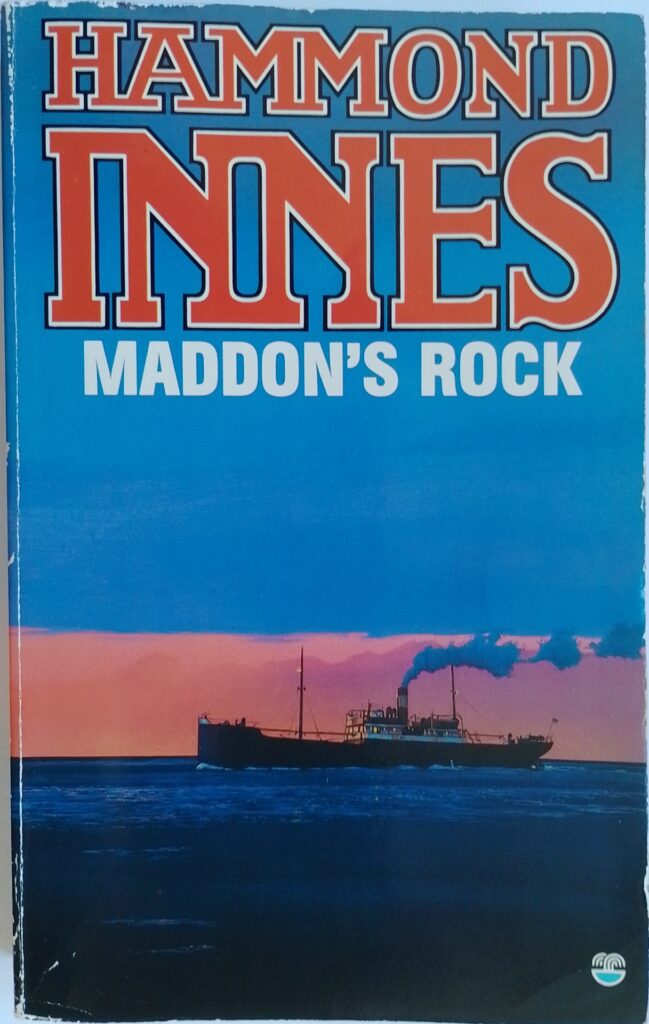First published 1947. Fontana, paperback, 1988, pp 272, c.90,000 words.
This story was originally written as a radio serial and later re-written into book form. It retains some of the distinctly episodic structure of the original which makes for a slightly uneven read.
The plot starting point is full of promise and originality: Towards the end of the second world war, a small group of British soldiers are waiting to return home from Murmansk where they have been training Russians in the use of military equipment supplied by the British. The group is requisitioned to stand guard over a special cargo on a ship forming part of an escorted convoy heading back home.
Innes always writes extremely well of the sea in all its moods, and this book is no exception. The bitter and fierce conditions of the Barents Sea are powerfully described, both in the early section and later on.
There is a young woman, of course, and one can tell she is a goody because she loves sailing and is strong-willed (the Innes type). Some of the other characters are also rather from the Innes stock stable. The loyal and good-hearted cockney sidekick, the sneering, sweaty, weak, bad guy, the gimlet-eyed arch-villain with his band of toughs, the old father of the girl: a perceptive and open-handed Scot (usually Scots are good guys in Innes’s stories.)
There are some well-constructed scenes: the courtroom drama is gripping and the descriptions of endlessly dull guard duty and prison life. Devon and Scottish land and seascapes are other highlights.
Unfortunately the plot is rather full of holes and implausible dramatic events. For example: escape from Dartmoor seems only too easy; why didn’t they take a camera with them on the final voyage, and why didn’t they leave when they had an opportunity during the eye of the storm?
So maybe not one of his best thrillers with its uneven feel and grinding plot gears, but nevertheless, it is entertaining and the descriptions of the sea are among his best.
By the way, did George MacDonald Fraser ever read this? Captain Charity Spring, from Flash for Freedom! (1971), has some remarkably similar characteristics to the evil captain here, although Spring was more inclined to quote the classics in Latin rather than Shakespeare.
© William John Graham, June 2022

